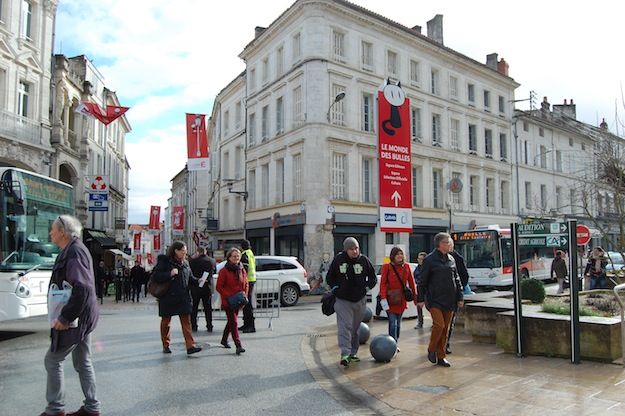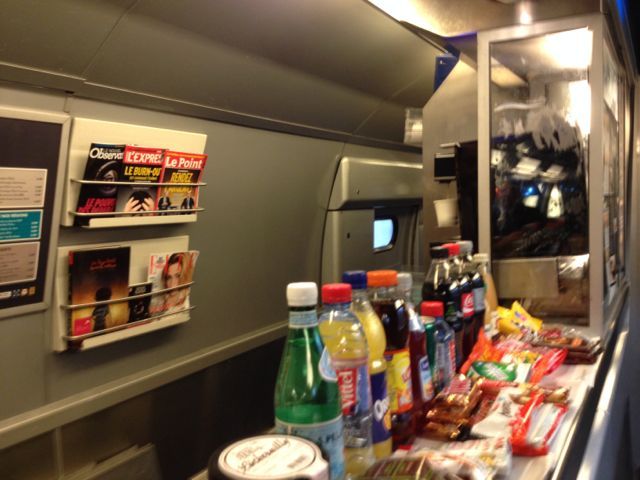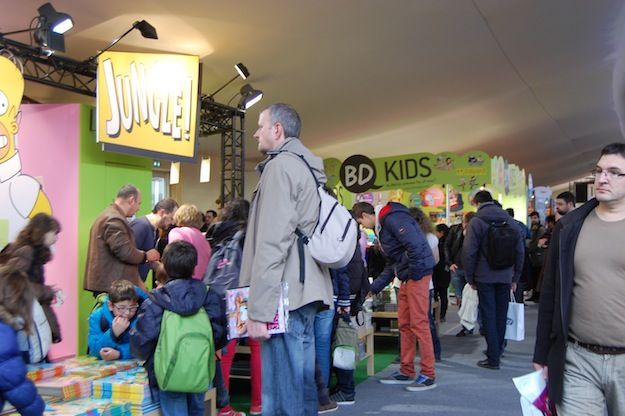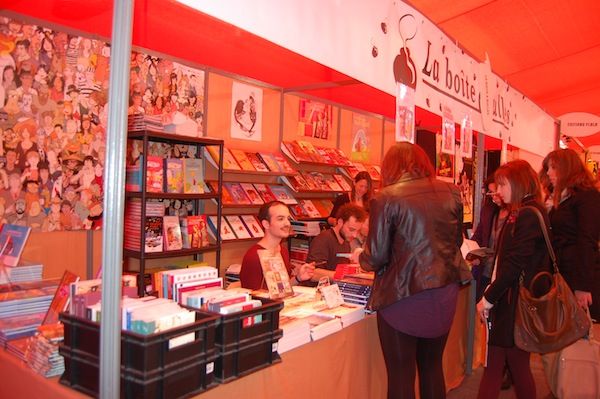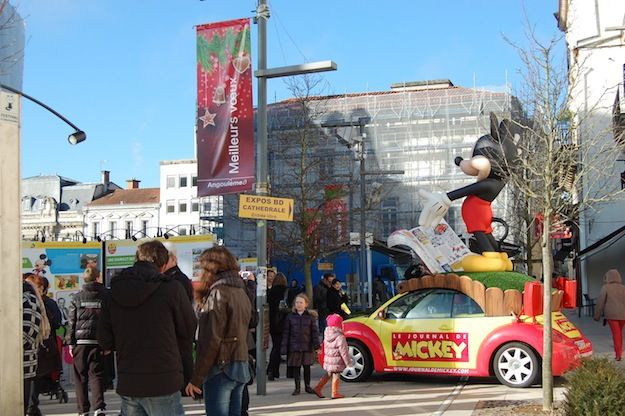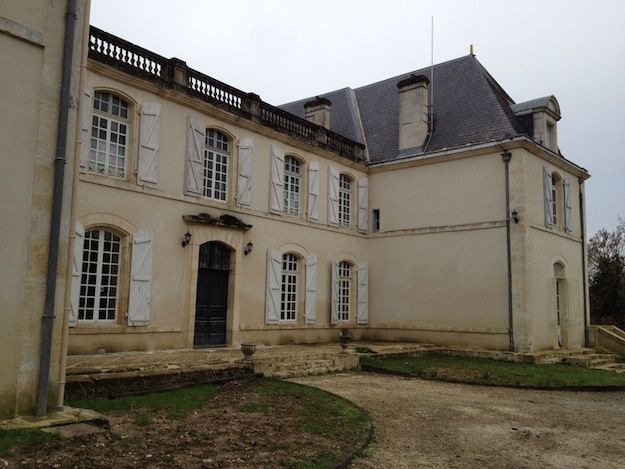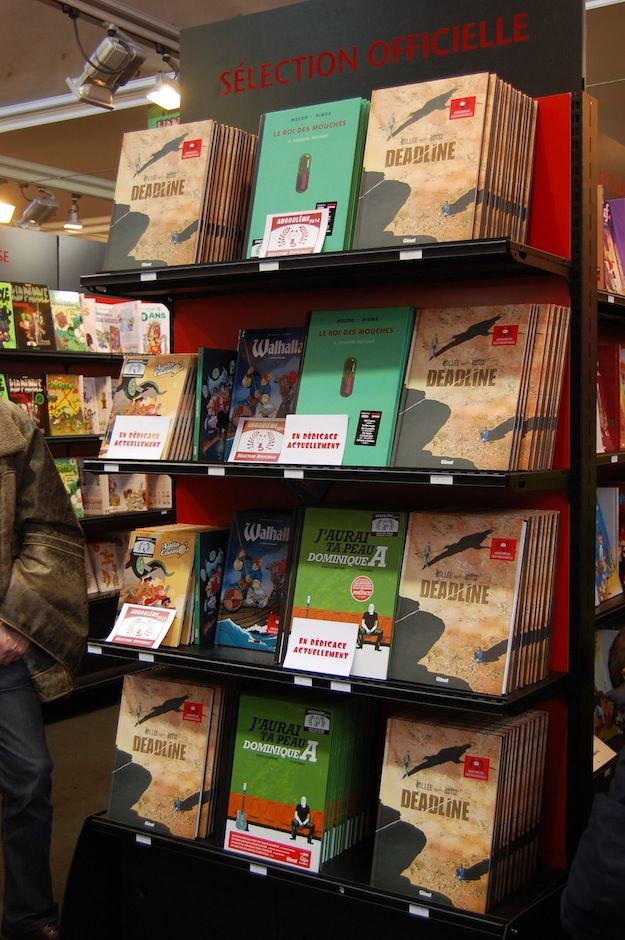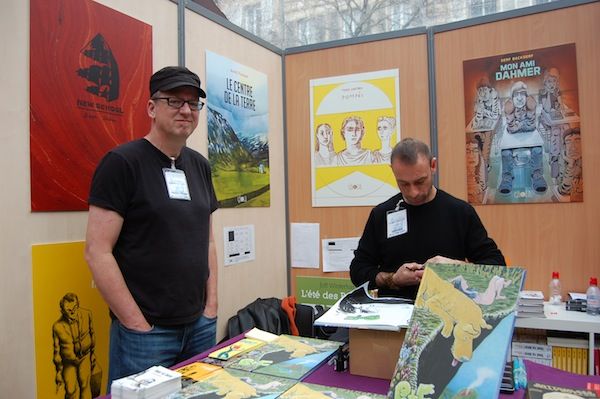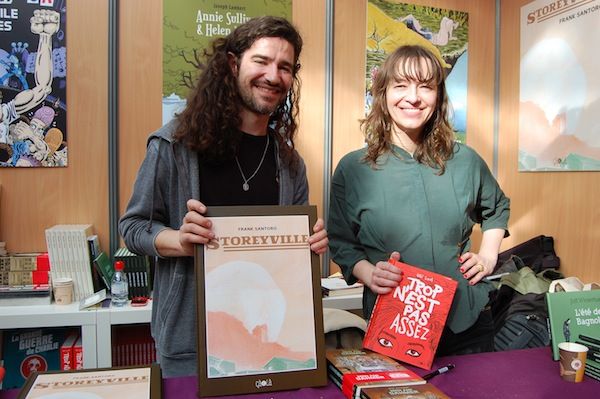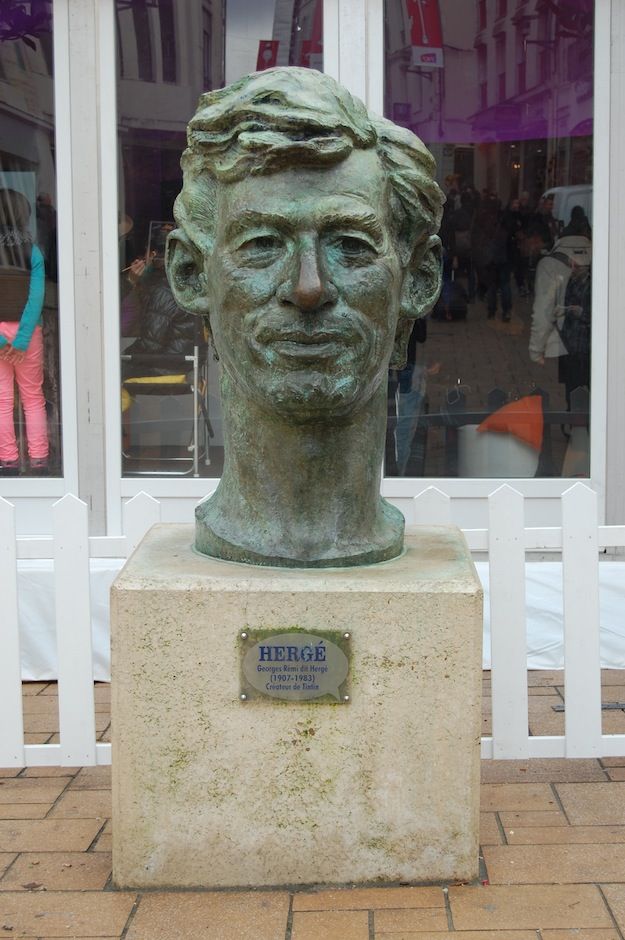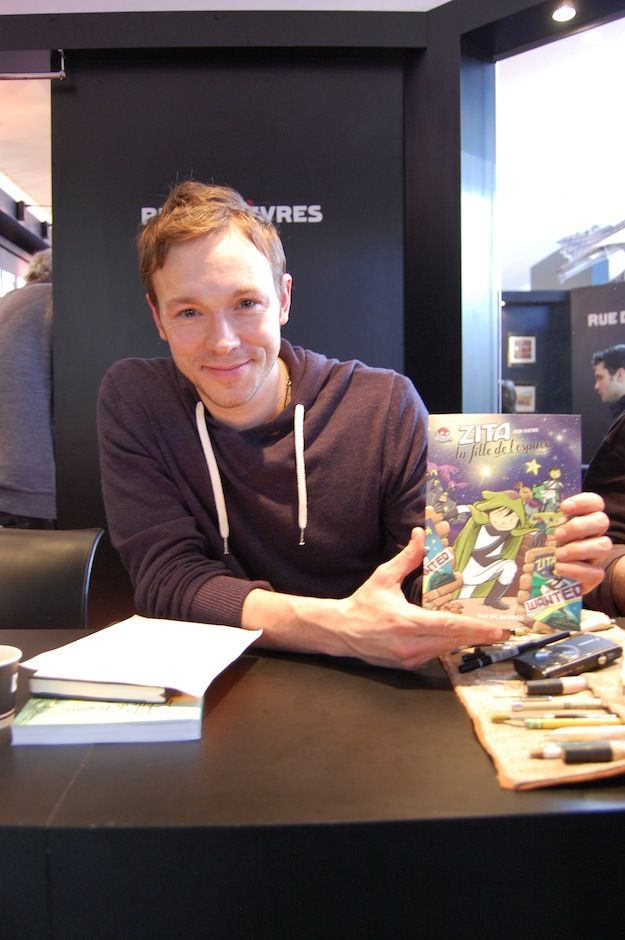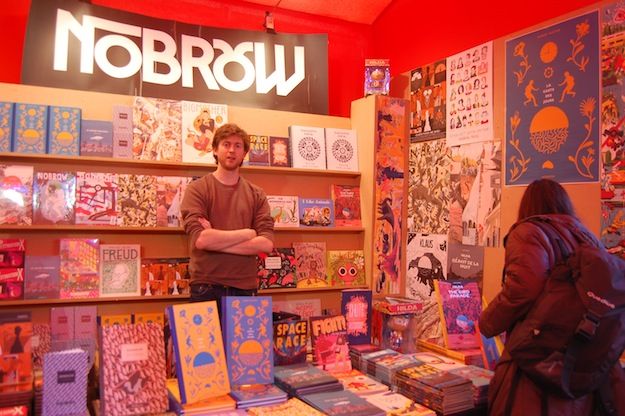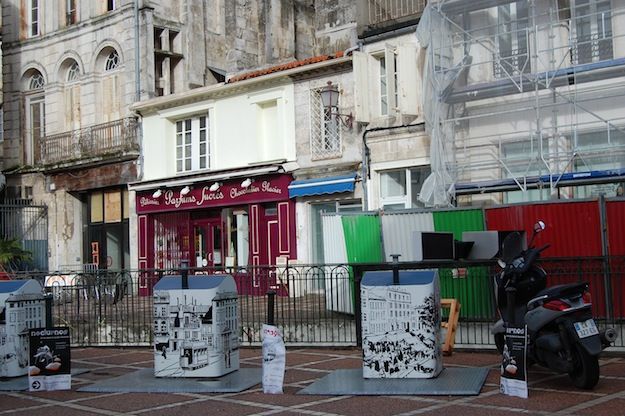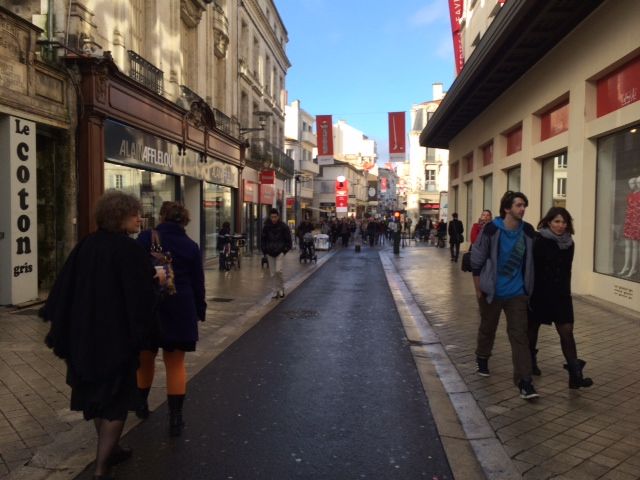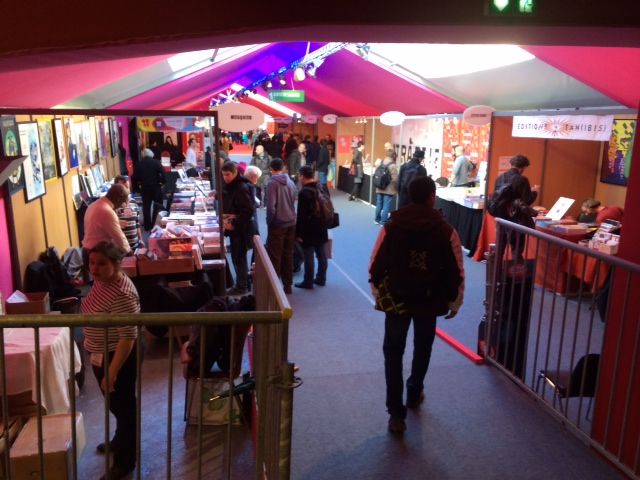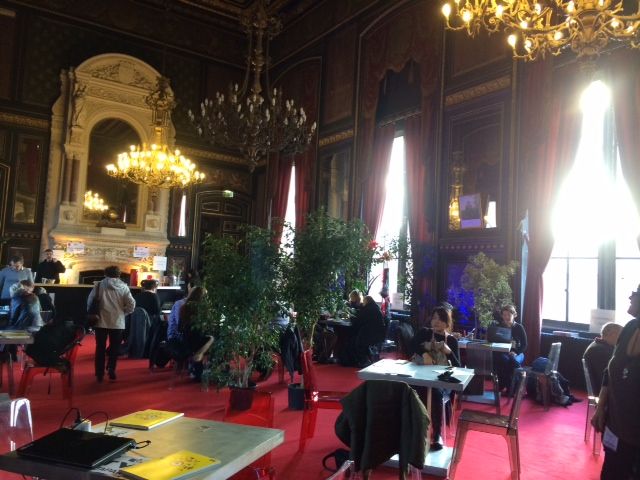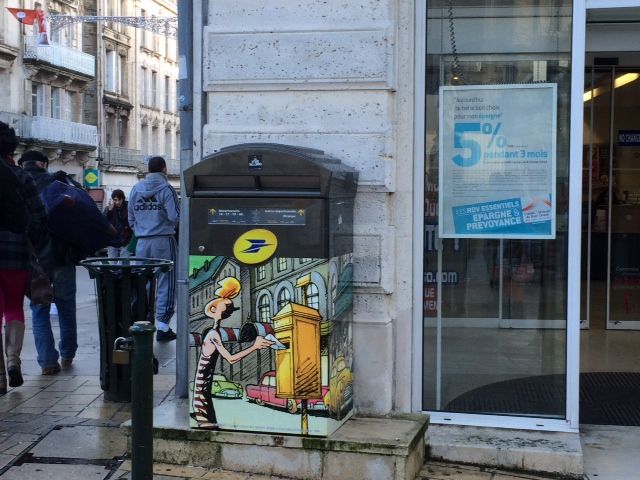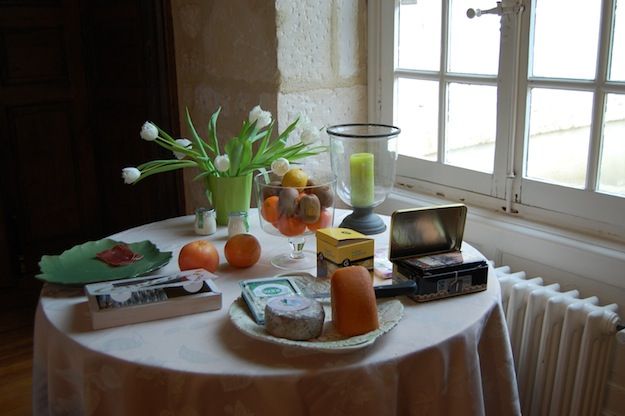Last week, when I was packing my bags to go to the Angoulême International Comics Festival, I kept having to explain to people — even comics people — what it was.
Now that I'm back, it's not a problem any more.
This year's selection of Bill Watterson as the winner of the Grand Prix d'Angoulême, and the president of next year's festival, has put Angoulême on the map for more U.S. readers — or at least, it has sent the cartoonist's fans scurrying to the map to see where it is.
What follows is a series of first impressions from my first trip to Angoulême; check out Publishers Weekly (which provided me with a press badge) for more solid coverage, and of course no one can capture an event like Heidi MacDonald.
There are a lot of reasons to go to Angoulême — the international array of creators and publishers who are there, the opportunity to get the hottest new BDs and of course, French food, scenery and wine all spring to mind — but to me, the most impressive thing about it was that I was in a place where comics really mattered. Comics aren't a niche product in France; they are available everywhere, they are widely read, and they are taken seriously. In my previous sojourns in France, long before I was a comics journalist, I was accustomed to seeing a rack of hardcover, full-color comics at the grocery store, train station, and bookstore.
When I went to get a cup of coffee on the train from Paris to Angoulême, there was a hardcover BD on sale in the cafe, alongside the news magazines. At the festival itself, I found myself dodging lines of schoolchildren on field trips. Before and during my trip, I followed the news and controversies of the festival in the mainstream French press.
The numbers tell the story: The population of France is 65.7 million, as opposed to 314 million in the United States, but comics sales are much larger. The top seller last year, according to the French comics association ACBD, was the latest volume of Astérix, which sold 2.48 million copies. Admittedly, that's an outlier; the second-biggest seller was Blake and Mortimer, with 445,000, but compare that to the top-selling graphic novel in the United States, according to BookScan: The Walking Dead Compendium, with fewer than 100,000 copies sold in 2012. While BookScan doesn't capture all sales, it's hard to imagine there were 300,000 other copies lurking elsewhere. On the manga side (which has stayed relatively stable, although there was a dip in 2013), the top seller, Naruto, moves 200,000 copies of every volume; that's more than 10 times the U.S. bookstore sales (again, as measured by BookScan).
Of course, you will see a more intense focus on comics during a big comics event, but the simple fact of the matter is that comics are a part of everyday life in France in a way that they aren't in America, and one side effect of that was that Angoulême felt very ... normal. I have never seen such a relaxed comic con. There were no cosplayers, for one thing. (I think they go to Japan Expo, which is equally massive, in July.) There didn't seem to be that sense of obsessiveness that you get at U.S. cons, where many people only have a few opportunities to indulge their tastes with like-minded fans. Nor is there the same frenzy to get in — you could buy one-day or four-day passes at the show, no badge lottery needed. Lodging is a different matter, but if you had friends in the area, or lived nearby, I can see how you might just pop in for the day. I didn't see any lines at the ticket booths, although on Saturday, the busiest day of the show, there was a line to get in the main tent, and the opening and closing ceremonies both sold out.
Apparently not too much happens in Angoulême the rest of the year (other than a car race through the narrow streets of the town, an event I'd pay money to avoid), but when 200,000 people arrive for the Festival international de la bande dessinée, the whole town turns into one big comics convention. There were two tents for the big publishers, another for the indies, and other, smaller tents for thrillers, Asian comics, and merchandise. There were exhibits of the works of Jacques Tardi and of Willem (last year's Grand Prix winner and therefore the president of this year's festival), of the works of illustrator Gus Bofa, the Argentine comics character Mafalda, and a controversial exhibit of manhwa and other artworks about the Korean "comfort women" who were forced to serve as sex slaves for Japanese soldiers during World War II. The city hall, cathedral, and theater were all turned into exhibit spaces, and the history of Le Journal de Mickey was displayed on billboards in a central plaza.
Angoulême doesn't have clusters of high-rise hotels, so finding a place to stay can be a challenge; lots of people rent rooms from the locals. I stayed in an 18th-century chateau in the countryside with a group of other comics professionals. It was a beautiful house, and we got an excellent breakfast every morning (organic yogurt, a selection of cheeses, homemade brioche and preserves), although being a 15-minute drive from town means we had to plan ahead a bit.
While I know this is obvious, it still bears mentioning that everything that takes place at Angoulême takes place in French. I didn't think this would be an issue, as I read the language fluently and spent several years in France and French-speaking Switzerland, but it's been a while since I've had to speak it on a regular basis, and I realized at the opening ceremony that my comprehension skills weren't up to par. So I skipped the panels and spent my time wandering around the tents and talking to people. There was a good contingent of British and American creators there, and most of the publishers had someone at the booth who spoke English. Almost all the books are in French, of course, although some publishers such as Nobrow had good selections of English-language stock. I would say that if you can read French well enough to enjoy a BD, you shouldn't let a lack of speaking skills stop you from going.
Bring some cash, though, because there's plenty to buy. Publishers large and small have booths piled high with BDs, from kid comics like Mistinguette to adult properties like the latest Blacksad. The creators are there, too, and when they do signings, they don't just dash off an autograph—they do detailed sketches. Consequently, one of the things I saw a lot of in the tents was long lines of people patiently waiting for their turn.
Angoulême is an international comics festival, and it was, although it's true that the French dominated in many ways. The biggest coterie of American creators seemed to be affiliated with the indie publisher Ca et La: Derf Backderf, Dash Shaw, and Frank Santoro were all at their booth when I swung by, together with the German creator Ulli Lust.

